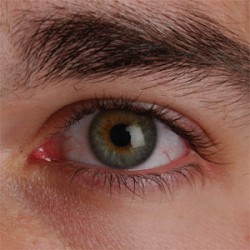 For the past few months, much of the nation has donned hats, boots, scarves and gloves as they face brutally cold and icy conditions of winter.
For the past few months, much of the nation has donned hats, boots, scarves and gloves as they face brutally cold and icy conditions of winter.
As temperatures rise, making outdoor activities more enticing, Vanderbilt ophthalmologists suggest not to be in such a hurry to stop protecting yourself from the elements.
Why?
March is known as the windiest month of the year.
“We are really good about putting on glasses or wearing a hat to protect our eyes from the sun,” said Mark Ewald, M.D., assistant professor of Ophthalmology and Visual Sciences at Vanderbilt University Medical Center. “We are seeing more people wearing protective eyewear during activities in the snow and for sporting events. But we also need to be aware that the wind can also cause damage to our eyes.
“Although there can be debris in the wind, it’s really the air moving across the surface of the eye that can make tears evaporate more quickly causing dryness.”
Dry eyes often cause irritation, prompting the impulse to rub away the itchiness, Ewald said.
“First and foremost, try not to rub your eyes, it can lead to corneal abrasions and scratches,” he said. “Rubbing can also cause irritation of the skin around the eye as well.”
He offers the following tips during the windy month of March:
- Blinking is the body’s way of re-establishing tears. It is a sign of dry eyes and the need for a lubricant.
- Use over-the-counter artificial tears drops to keep the eyes lubricated.
- A gel drop is another option if the liquid tears are not effective. The gel form stays on the surface of the eye longer.
- Use a lubricating ointment as an alternative for very dry or scratched eyes. Despite improved comfort, the thick consistency can impact vision, Ewald warns. This form is often used at night.
- Wear glasses to protect the eyes during windy conditions.
- Sport a hat with a bill to help shield the eyes.
Ewald said March is also the beginning of allergy season, so the combination only exacerbates dry eyes. Red eyes, pain or a change in vision are all concerning signs that should prompt a visit to an eye professional, he said.















